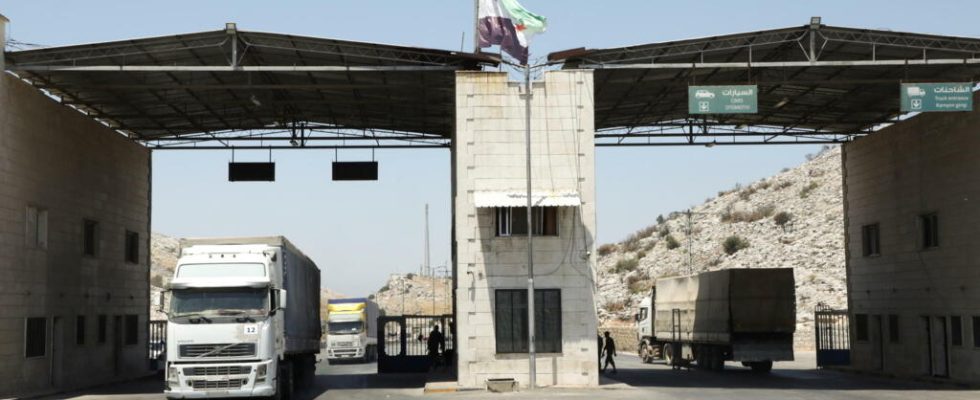The Security Council had failed to agree to maintain the main crossing point for humanitarian aid in Syria. Damascus decided this week to reopen it, of its own free will, for six months. A total reversal of the regime of Bashar al-Assad, after ten years when he had refused any transit through his borders.
2 mins
With our correspondent in New York, Carrie Nooten
Damascus surprised again: after reopening two cross-border points following the February earthquakes, Syria announced Thursday, July 13 to leave the main passage accessible for six months, through which passes 85% of aid. In total, 2.7 million Syrians in Idleb will still be able to receive aid.
“ The government of the Syrian Arab Republic has taken the sovereign decision to grant the UN permission to use the Bab Al-Hawa cross-border point to deliver humanitarian aid to civilians in need in the northwest from syria », announced Syrian Ambassador Bassam Sabbagh.
For four years, the renewals of the humanitarian passage have regularly replayed arm wrestling between Russia and the rest of the Security Council. As of Monday, Bab Al-Hawa had been closed, as Russia had vetoed its nine-month extension and proved steadfast. Only his project of six additional months was possible. But since he attacked the sanctions imposed on Damascus, this made him unacceptable to Westerners.
The latter, relieved to see that aid will continue to flow, are nevertheless worried that the UN, and the aid that they largely finance, now depend on the goodwill of Damascus. Diplomats from the Gulf and Africa see it as a sign of more openness from Bashar al-Assad, a pledge in favor of his rehabilitation.
Moscow has not spoken, but some believe that his veto was calculated to offer this opportunity to Damascus to regain control of this crossing point, and thereby put an end to all supervision by the Security Council.
